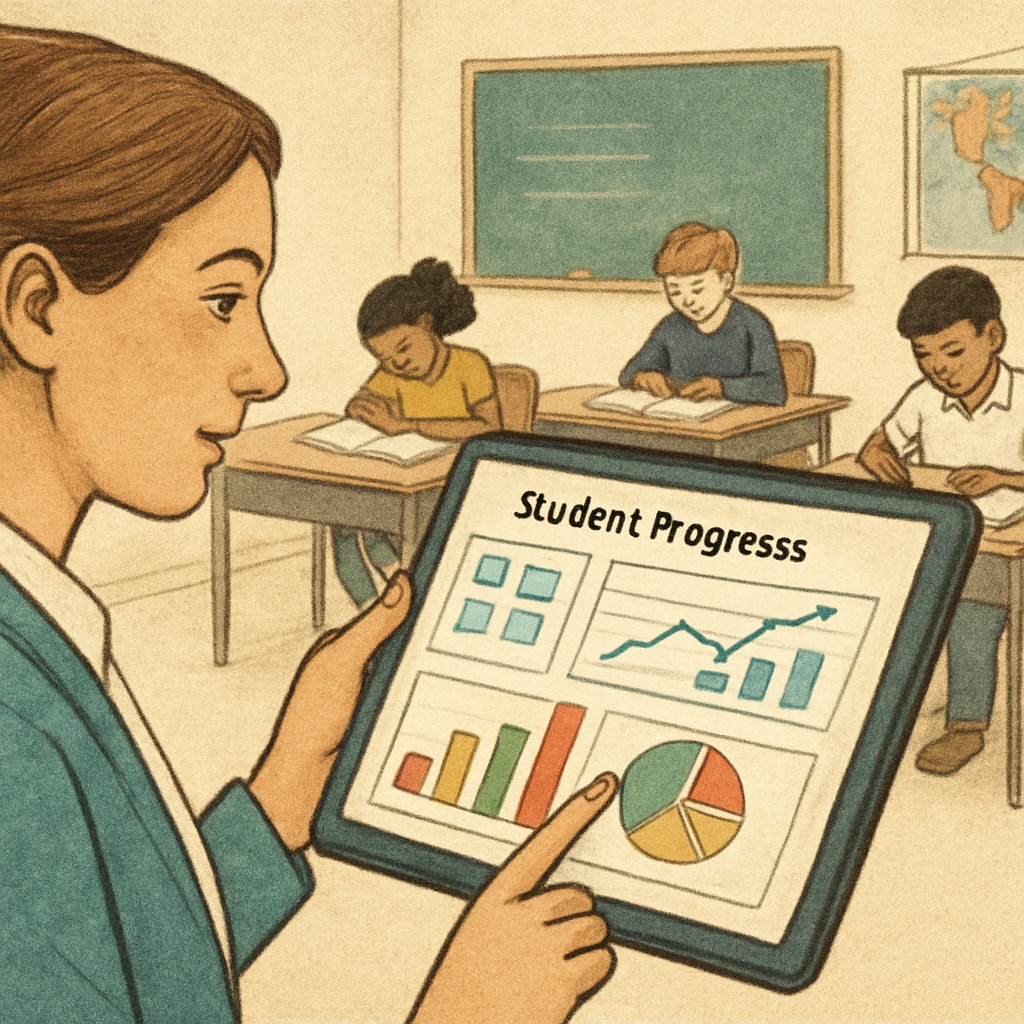In K12 education, the reliance on grades as the primary measure of success has long been the norm. However, this approach often oversimplifies the complexity of learning, neglecting the multidimensionality of student growth and individual differences. “Education assessment, grade limitations, real-time learning tracking” are key areas where traditional methods fall short and demand a reimagined approach. This article explores the limitations of grade-based assessments and highlights the potential of real-time learning tracking as a better indicator of true educational success.
The Limitations of Grade-Based Education Assessment
Grades are often viewed as a universal language for evaluating student performance. While they provide a convenient snapshot, their simplicity can be deceptive. Letter or numerical grades fail to capture a student’s depth of understanding, creativity, or critical thinking skills. Furthermore, they encourage a “one-size-fits-all” approach, which disregards the diversity in how students learn and demonstrate their knowledge.
For example, a student with strong verbal reasoning but weaker test-taking skills might underperform in grade-centric systems, despite having a profound understanding of the subject. Additionally, this overemphasis on grades fosters a competitive environment, often prioritizing rote memorization over meaningful learning.
As Dr. Alfie Kohn, a prominent education researcher, argues, grades can reduce intrinsic motivation and stifle curiosity by shifting the focus from learning itself to achieving high scores. Read more about Kohn’s critique of grading. This underscores the need to look beyond grades for a more holistic way to evaluate student progress.

Real-Time Learning Tracking: A Holistic Alternative
Real-time learning tracking offers an innovative alternative to traditional grade-based systems. By focusing on continuous engagement, incremental progress, and skill mastery, this approach enables educators to gain a clearer and more dynamic picture of a student’s learning journey.
Unlike grades, real-time tracking monitors various aspects of learning, such as participation, problem-solving abilities, and the application of knowledge in diverse contexts. For instance, tools like formative assessments, project-based learning, and digital portfolios provide ongoing feedback that helps students and teachers identify strengths and areas for improvement.
Moreover, real-time tracking can be tailored to individual students, accommodating their unique learning styles and paces. This personalized approach not only fosters a deeper understanding of the material but also enhances student confidence and engagement. According to a study by Edutopia, formative assessments significantly improve student outcomes by encouraging active involvement in the learning process.

Rethinking Success in Education
Adopting real-time learning tracking requires a shift in how educators and society define success. True educational success should encompass not only academic achievements but also emotional intelligence, collaboration, and lifelong learning skills. By embracing a more holistic view, we can cultivate well-rounded individuals prepared for the challenges of the modern world.
For educators, this means integrating diverse evaluation methods, such as peer reviews, self-assessments, and competency-based assessments. These approaches provide richer insights into a student’s abilities and foster a culture of continuous improvement rather than finality.
Challenges and the Path Forward
While the benefits of moving beyond grades are clear, implementing such changes is not without challenges. Resistance to change, lack of resources, and the need for teacher training are common barriers. However, with the growing availability of digital tools and innovative pedagogical frameworks, these obstacles can be overcome.
For example, platforms like Google Classroom and Edmodo allow for seamless integration of real-time learning tracking, enabling educators to provide immediate feedback and adapt lessons to student needs. Governments and schools must invest in training educators to leverage these tools effectively, ensuring a smooth transition to a more dynamic assessment model.
Ultimately, the future of K12 education lies in its ability to adapt and evolve. By prioritizing holistic assessments over grades, we can create an inclusive, equitable, and empowering learning environment for all students.
Conclusion: The limitations of traditional grade-based assessments highlight the need for innovation in K12 education. Real-time learning tracking offers a promising alternative, emphasizing continuous progress, individual growth, and meaningful engagement. As educators, parents, and policymakers, it is time to ask: What truly defines learning success?


